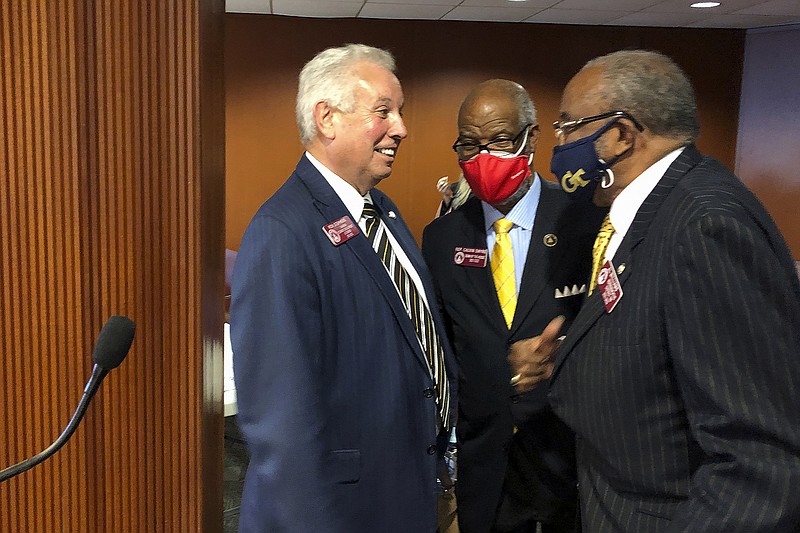Legalized sports betting died at the 1-yard line this week, failing to make it through the Georgia General Assembly.
The legislature ended its 2021 session Wednesday and spent the later hours of that day finalizing the state's budget. Among the bills that made it through to the end were a rewrite of the state's citizen's arrest law, a controversial overhaul of state elections that adds new restrictions on mail voting and a human trafficking bill that would allow victims or state officials to file civil lawsuits seeking damages from traffickers.
Proponents of sports betting in Georgia came at the issue with two separate bills - SB 135 and SB 142 - with Sen. Jeff Mullis, R-Chickamauga, signing on as co-sponsor for both.
The bills were designed and marketed as economic development measures that would have driven income for college scholarships for low-income students as well as expand high-speed internet access and rural health care services.
The bill would have legalized betting on the ballot in 2022, allowing Georgia residents the deciding votes. However, due to the controversial election reform bill that was signed by Gov. Brian Kemp, state Democrats blocked a number of bills including the sports betting ones in protest of the election one.
Originally, the legalized betting bill did have bipartisan support, but some conservative and religious camps of the GOP have opposed gambling expansion.
Legalized sports gambling has taken off in the last half decade around the country and even parts of the South.
Tennessee legalized sports betting in 2020, with some businesses launching in November. The online-only sports betting program saw $131.4 million in gross wagers in its first month, yielding almost $2.4 million in privilege taxes for the state, records show.
Sportsbooks made $118.2 million in gross payouts in the first month. Eighty percent of the tax revenue goes into an education account that mostly funds post-secondary scholarships. Fifteen percent goes toward local government needs and 5% funds gambling problem treatment programs.
However, some local groups weren't on board with legalized sports betting.
The Whitfield County GOP - which also fought hard against its own representative over a student tuition bill for DACA students - lobbied hard against the bill.
In the weeks leading up to the end of the session as the betting bill gained momentum, the Whitfield County GOP sent its members emails warning the bill would get through.
"URGENT," an email on March 25 read. "Bills to expand state-sanctioned gambling are going to the House floor today."
The local GOP chapter didn't want the measure to be taken to a statewide referendum and didn't appreciate how lawmakers were using that as a way to say they don't necessarily agree with legalizing sports betting but that they would leave it up to the voters.
"Our representatives know since 2008 there have been 28 state-wide referendums placed on the ballot and 27 have passed, almost a guaranteed outcome," the GOP party wrote. "They will tell you. 'I let the voters decide' [is] disregarding the wishes of their constituents and letting the large voting blocks around Atlanta and other Democrat strongholds decide what the Republicans in Northwest Georgia want."
Still, the bill had a chance to pass on the last day of the session Wednesday. The Whitfield County GOP took notice.
"Maybe deals being made with Democrats as to the distribution of the (loot) proceeds from the State's share of the profits?" the email read.
However, the bill was not to be. The House Committee on Rules advanced it back to the House floor Wednesday afternoon where it died without action.
Contact Patrick Filbin at pfilbin@timesfreepress.com or 423-757-6476. Follow him on Twitter @PatrickFilbin.
